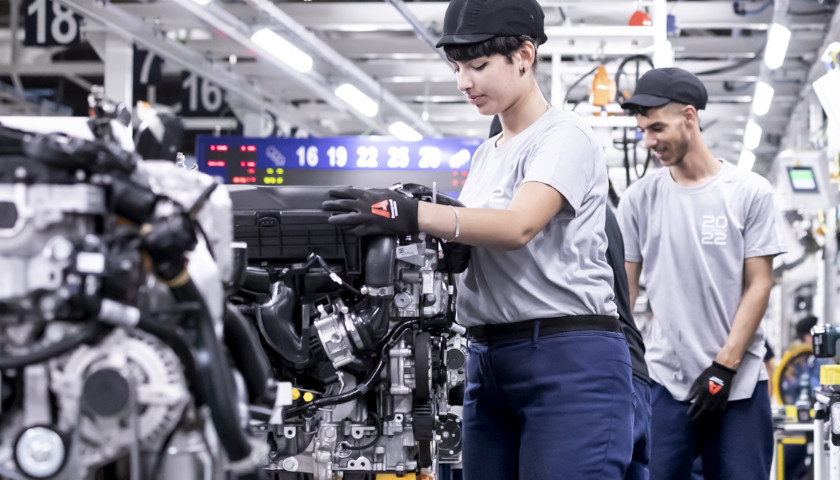by Scott McClallen
Big Three automaker Stellantis seeks 6,400 buyouts – nearly half its 12,700 total non-bargaining unit – as it accelerates into an electric future.
Citing “challenging market conditions”, Stellantis’ Media Relations Director Jodi Tinson said the offer is open to non-bargaining unit U.S. employees with at least five years of corporate service.
“As the U.S. automotive industry continues to face challenging market conditions, Stellantis is taking the necessary structural actions to protect our operations and the company,” Tinson wrote. “As we prepare for the transition to electric vehicles, Stellantis announced today that it will offer a voluntary separation package to assist those non-represented employees who would like to separate or retire from the company to pursue other interests with a favorable package of benefits.”
Stellantis said it remains committed to executing its Dare Forward 2030 strategy, including launching eight new EVs.
The buyout follows automakers hitting the brakes on planned EV production as Ford paused a $3.5B Michigan EV plant, General Motors and Honda canceled a program to sell EVs for $30,000, and Ford postponed about $12B of EV investment after expecting to lose about $4.5B on EVs in 2023.
John Mozena, the president of the Center for Economic Accountability, said EVs are simpler to make than traditional gas or diesel-powered vehicles, which means companies need fewer human workers.
“It’s not just assembly line workers; they also need fewer engineers because there are fewer parts to design, they need fewer people to manage the supply chain, they need fewer HR people because there’s fewer engineers and supply chain managers to hire, etcetera,” Mozena wrote in an email. “This is one of the key things that makes it ridiculous to say that EV plants in Michigan are ‘creating jobs,’ as they’re part of a transition that’s eliminating all sorts of jobs across the industry.”
Last week, Michigan lawmakers passed a bill to create a fifth new government agency since 2020 called the Community and Worker Economic Transition Office to help people who lose jobs in the auto, construction, and energy sectors during the renewable energy transition.
This week, Crain’s Detroit reported Michigan offered Stellantis $1B in subsidies for a factory but the company still picked a spot in Indiana.
“It just goes to show that despite what the politicians and bureaucrats all say, the reality is that companies rarely make decisions about where to build facilities based on economic development subsidies,” Mozena wrote.
Mozena said Michigan is “heading in the wrong direction by trying to use gigantic subsidies to offset a series of anti-business decisions on important issues like energy, tax and labor policy.”
Mozena said lawmakers should create a good business environment for all businesses instead of giving billions of dollars to select companies with “political connections.”
– – –
Scott McClallen is a staff writer covering Michigan and Minnesota for The Center Square. A graduate of Hillsdale College, his work has appeared on Forbes.com and FEE.org. Previously, he worked as a financial analyst at Pepsi. In 2021, he published a book on technology and privacy. He co-hosts the weekly Michigan in Focus podcast.
Photo “Stellantis Workers” by Stellantis.








